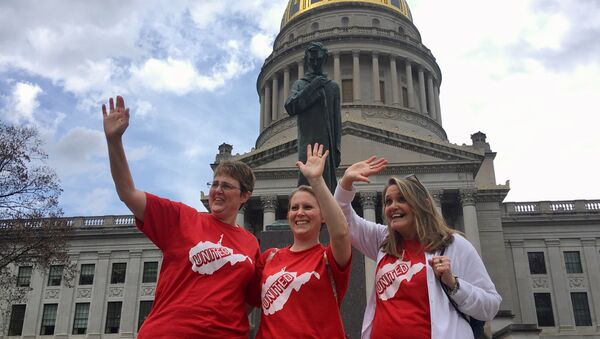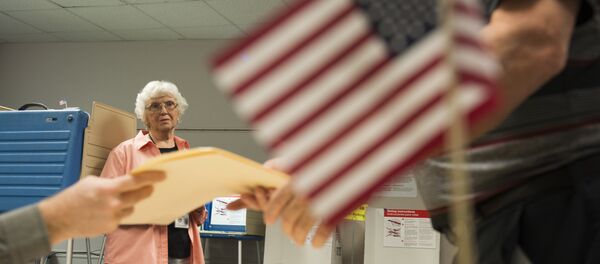In a Friday afternoon news conference, union leaders noted that thousands of teachers and school service workers in all 55 counties in the predominantly rural eastern US will continue striking into next week.
A recent joint statement by West Virginia Education Association, the American Federation of Teachers' West Virginia chapter, and the West Virginia School Service Personnel Association, detailed that, "It is clear that education employees are not satisfied with the inaction of legislative leadership or the governor to date. Our members have spoken and the Legislature has not."
West Virginia Education Association President Dale Lee also recently announced that county school superintendents will keep schools closed for a third day. Missed class time will be added to the end of the school year.
"This is not an easy decision to make," Lee said, cited by ABC news. "But it's a decision that our members in every county gave us the authorization to make."
According to ABC, a West Virginia Department of Education spokeswoman declined to comment on the strike, while State Schools Superintendent Steve Paine attempted to avoid the issues by claiming that school closures are disruptive to students.
West Virginia Governor Jim Justice had signed unpopular bills raising teacher pay by two percent in 2019 and one percent in the two following years. Educators in the state point out that the increases are not high enough, particularly when factoring in anticipated health insurance cost increases over the next few years.
The West Virginia Public Employees Insurance Agency, a state organization that retails health care programs for state workers including teachers, has approved freezing health insurance premiums and rates for the next fiscal year for public workers.
In addition, the state's House of Delegates recently passed legislation to transfer an estimated $29 million from the state's rainy day fund — reserved money to be spent if regular income is either disrupted or decreased — to freeze health insurance rates. The legislation will also apply 20 percent of future general fund surpluses to a separate fund that can be used to help pay for state employees' insurance. Both of these bills are currently waiting for approval in the West Virginia Senate.
However, educators are concerned that the proposed legislation will either be temporary or that the state surplus will be substantial.
Earlier on Friday, Senate President Mitch Carmichael acknowledged to union leaders that their "points are well made."
"You have every right to make them and we hear you. We're taking steps
to address your issues," Carmichael told a crowd of union leaders at the state's capitol.
On Friday, Greenbrier County Democrat Stephen Baldwin said he understands that "there's a sense that trust has been broken over the years."
"But I believe we're in a pivotal moment where that trust can be repaired now if we show each other some respect and we show each other some human decency," he suggested.




